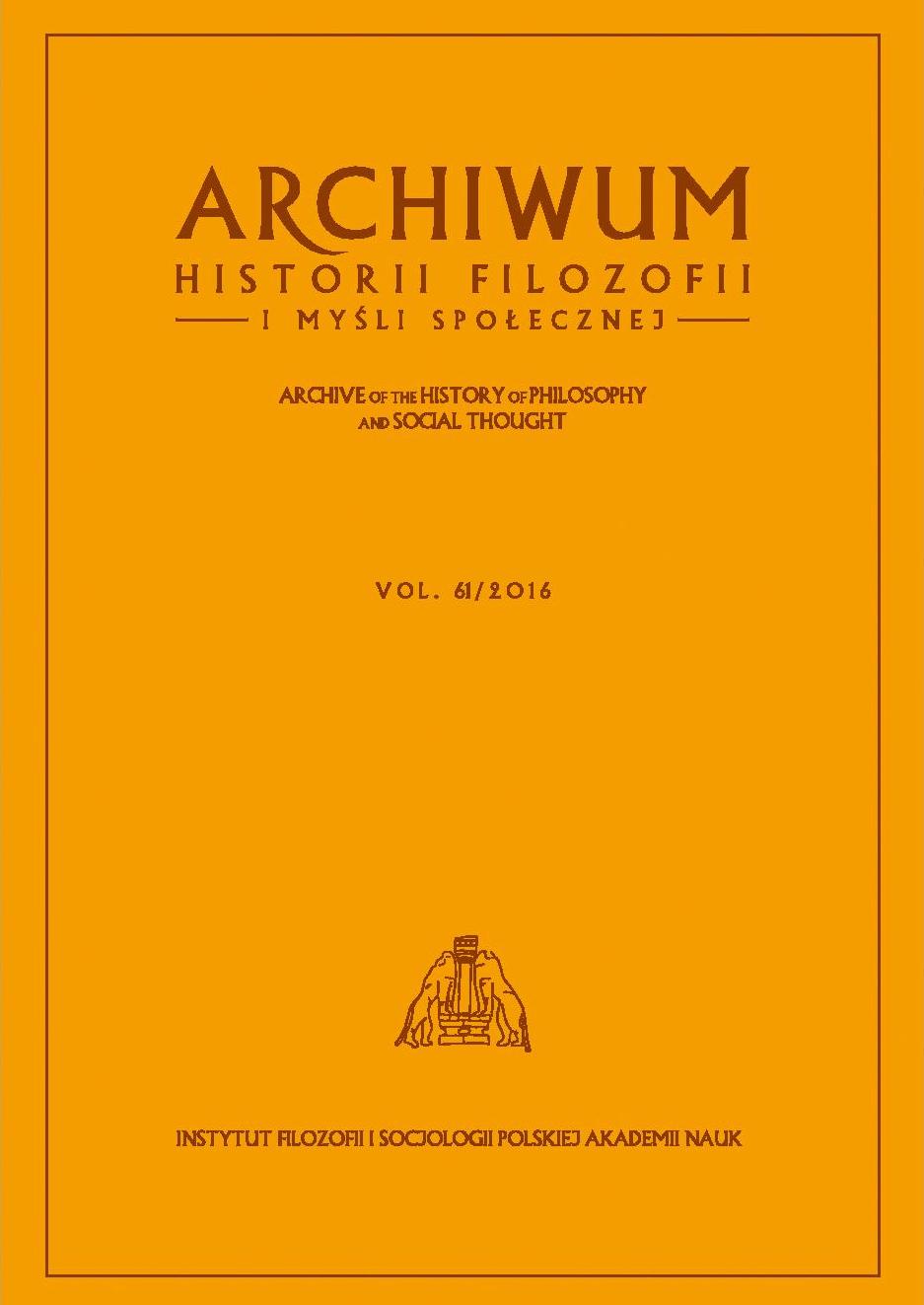Aristotle’s prote philosophia: Metaphysics, Ontology, Theology or Methodology?
Aristotle’s prote philosophia: Metaphysics, Ontology, Theology or Methodology?
Author(s): Seweryn BlandziSubject(s): Philosophy, Special Branches of Philosophy, Ancient Philosphy, Ontology
Published by: Instytut Filozofii i Socjologii Polskiej Akademii Nauk
Keywords: Aristotle; first philosophy; wisdom; first principles and causes; ontology; metaphysics; theology; methodology
Summary/Abstract: The term “first philosophy” became popular, because of Aristotelian Metaphysics, where it is associated particularly with the knowledge of the first principles and causes. In relation to other kinds of knowledge, it would play a regulative role as archikotera and even archikotate ton epistemon. In the sixth book (E) of Metaphysics, the aporetic question is raised, and it concerns thehonor of being „the first” – whether it is to be attributed to the knowledge of some particular and specific kind of subject matter, because of its exceptional ontic status, or whether it is to be attributed to the most general ability that has universal value. In the first case, to ariston en te physei pase would be regarded as most noble for its gravity deserves, which would have to exceed everything in the nature. In the second, one could call it the „first” ability due to its range of application. From the Book Epsilon it does not follow that the timiotaton genos (=to theion) should dethrone to on he on as the only legitimate subject of the first philosophy. The major problem of the Epsilon is the primacy of philosophy understood as the very first of the abilities (explaining the beings/things/facts distributively), and not due to its being some „supraphilosophy”, but rather due to the universality of its method, i.e., due to the fact that it can (albeit does not have to) deal with the most dignified Being. Aristotle understood the priority of the (first) philosophy as the proper, first wisdom (sophia), as a special ability of dealing with any subject matter of knowledge. In Aristotle, the role of the unifying factor is played by the formal approach, identical in each case, providing exhaustive, ultimate explanations, namely, asking the same questions about the essential, final, material and efficient causality.Pointing to the causes of anything is tantamount to its explanation and justification, “an explanation in all the possible meaning in which something can be explained” (Th. Kuhn). Thus, philosophy is the first one, because the principles and causes ontologically precede being, as logically, within the order of knowledge, the explanatory reasons are first; the situation is exactly the same as in logic where explanans logically precedes explanandum.In brief, being familiar with the cause-and-effect nexus (aitiology) is discovering of the truth, namely, the wisdom and knowledge, including the art of definition of essences of things (ousiology), because in the structure of being ousia is also that which is the first.
Journal: Archiwum Historii Filozofii i Myśli Społecznej
- Issue Year: 61/2016
- Issue No: 61
- Page Range: 273-286
- Page Count: 14
- Language: English

